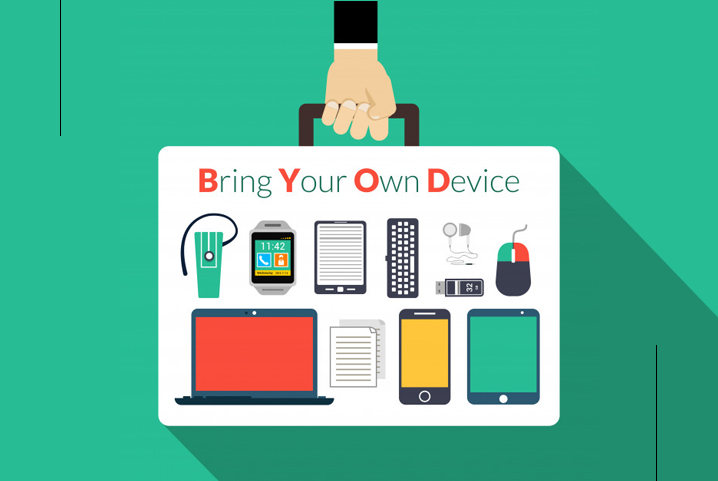Consumer technology is setting the agenda for the workplace, increasingly. It is now common to see organisations allowing personally owned devices to access their network within or outside the organisation. Employees, business partners, and staff members use personally selected devices like tablets, laptops, phones to execute enterprise application and data.
The trend of ‘Bring Your Own Device’ stems from the perception of enhanced overall agility and productivity. Although the benefits offered by BYOD have resulted in the continuous uprise of such practices, they have also introduced several security threats and are not hitch-free due to many concerns. The devices are vulnerable to sensitive data leakage, and it can even lead to interoperability risks.

These risks, if not adequately assessed and managed, may cause irreversible harm to the business. It is also not wise to do away with the policy that offers flexibility, cost-saving, enhanced satisfaction, and productivity, etc. So, here are a couple of do’s and don’ts to strengthen BYOD policy.
Do’s
- An organisation can and must determine what data can and can’t be accessed, processed, encrypted, and stored through the devices.
- Do add an aspect of penalties and fines for breaching the policy while formulating one. For instance, France’s cap on fines is €150,000, plus five years in prison.
- Do consider the capabilities that the organisation requires before enforcing the policy.
- Do invest in enhancing infrastructure and security for seamless integration of the policy within the organisation.
- Prepare a vulnerability scoring system to evaluate risks and recognise vulnerability. CWE, CVSS, and CWSS are some commonly used approaches for scoring vulnerabilities.
Don’ts
- Ignoring BYOD is not an option, and organisations must not scrap or make stringent policies that can hamper the benefits of the policy.
- Don’t implement or think of BYOD in absolutes. Instead, use a hybrid model with some employees eligible for BYOD while others for Corporate Liable Employee Owned (CLEO), and Corporate Owned Personally-Enabled (COPE).
- Don’t let anyone keep the company’s or business data unprotected.
- Don’t forget about the role-based access control.
- Don’t fail to conduct an exit plan to ensure nothing is lost or leaked during the transition phase.
- Don’t expect to save money with BYOD.
BOYD is an important element of an elaborate business management strategy. With these do’s and don’ts, make the policy reliable, meaningful, and sustainable for a longer run. We, at Pratham software, one of the best software development companies in India, have built and deployed a secure and efficient network for BYOD. Security and privacy is a process that requires proper attention and administration. Our team is equipped to provide quick solutions to your security-related concerns.









